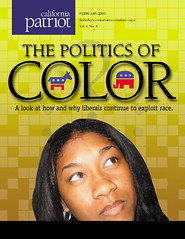Yes, Race is Changing in America
 Image via Wikipedia
Image via WikipediaUsing passages from F. Scott Fiztgerald's The Great Gatsby, Hua Hsu (Vassar College) uses the occassion of Barack Obama's election as president to write an interesting article on what might be termed "white anxiety"in the changing ethno-racial landscape of the United States. This kind of "psychological" speculation on white responses to race is interesting and informative. This is a bit of a longer post, so pull up a chair or bookmark this one for later.
Hsu writes,
[W]e’re approaching a profound demographic tipping point. According to an August 2008 report by the U.S. Census Bureau, those groups currently categorized as racial minorities—blacks and Hispanics, East Asians and South Asians—will account for a majority of the U.S. population by the year 2042. Among Americans under the age of 18, this shift is projected to take place in 2023, which means that every child born in the United States from here on out will belong to the first post-white generation.
Yep - the statistics are clear. The ethnic composition of the United States has been changing, and the percentage of whites is steadily going down. Because demographers estimate the category of "white" will be less than 50% in the next few decades (and is already less than 50% in certain areas of the country), there's a lot of discussion about how whites are reacting.
What Does It Mean for Whites?
Hsu writes,
What will it mean to be white after “whiteness” no longer defines the mainstream? Will anyone mourn the end of white America? Will anyone try to preserve it?
Obama's presidency accentuates the new multi-ethnic reality of America. But we must be cautious at claiming a post-racial country. Although Hsu writes,
 Image via Wikipedia
Image via WikipediaPop culture today rallies around an ethic of multicultural inclusion that seems to value every identity—except whiteness. “It’s become harder for the blond-haired, blue-eyed commercial actor,” remarks Rochelle Newman-Carrasco, of the Hispanic marketing firm Enlace. “You read casting notices, and they like to cast people with brown hair because they could be Hispanic. The language of casting notices is pretty shocking because it’s so specific: ‘Brown hair, brown eyes, could look Hispanic.’ Or, as one notice put it: ‘Ethnically ambiguous.’”
But my research at a Hollywood church where the majority of attenders was African American shows that whites are still more easily, and more steadily, employed by media.
While more roles exist for non-whites, these roles don't tend to accentuate an ideal of "multiculturalism" as much as reinforce stereotypes of ethnic minoritis that exist in the minds of whites. In fact, sometimes there aren't enough non-whites to fill the stereotypes so that Mexican-Americans become Middle East terrorists, and American Blacks become African refugees.
Still...
Still, many commentators see Whites being concerned with the increasing diversity. Hsu quotes,
“I think white people feel like they’re under siege right now—like it’s not okay to be white right now, especially if you’re a white male,” laughs Bill Imada, of the IW Group. Imada and Newman-Carrasco are part of a movement within advertising, marketing, and communications firms to reimagine the profile of the typical American consumer.
Yes, non-whites are getting more attention and expanding marketing to non-whites is a smart move for businesses.
But let's not be too hasty. Fundamentally, marketers in nearly all outlets know that the big dollars will continue to be found among whites. Smart, niche businesses will initially draw in ethnic specific consumers as other outlets remain mainstream.
 Image by oso via Flickr
Image by oso via FlickrThe most interesting aspect of Hsu's article explores changes happening among whites, in particular that more whites are seeking to lose their "whiteness":
[I]f white America is indeed “losing control,” and if the future will belong to people who can successfully navigate a post-racial, multicultural landscape—then it’s no surprise that many white Americans are eager to divest themselves of their whiteness entirely.
Can whites "lose" their whiteness? He quotes a sociologist,
Matt Wray, a sociologist at Temple University...has observed that many of his white students are plagued by a racial-identity crisis: “They don’t care about socioeconomics; they care about culture. And to be white is to be culturally broke. The classic thing white students say when you ask them to talk about who they are is, ‘I don’t have a culture.’ They might be privileged, they might be loaded socioeconomically, but they feel bankrupt when it comes to culture … They feel disadvantaged, and they feel marginalized. They don’t have a culture that’s cool or oppositional.”
This conforms to other observations. And in my own experience, White students often fail to recognize they also have a culture (or actually many cultures).
Less White? Or Hyper-White?
You can move away from whiteness, but you can also become hyper-white.
The “flight from whiteness” of urban, college-educated, liberal whites isn’t the only attempt to answer this question. You can flee into whiteness as well. This can mean pursuing the authenticity of an imagined past: think of the deliberately white-bread world of Mormon America, where the ’50s never ended, or the anachronistic WASP entitlement flaunted in books like last year’s A Privileged Life: Celebrating Wasp Style, a handsome coffee-table book compiled by Susanna Salk, depicting a world of seersucker blazers, whale pants, and deck shoes.
Larry the Cable Guy is Hyper White. Image via WikipediaThis notion of a self-consciously white expression of minority empowerment will be familiar to anyone who has come across the comedian Larry the Cable Guy—he of “Farting Jingle Bells”—or witnessed the transformation of Detroit-born-and-bred Kid Rock from teenage rapper into “American Bad Ass” southern-style rocker. The 1990s may have been a decade when multiculturalism advanced dramatically—when American culture became “colorized,” as the critic Jeff Chang put it—but it was also an era when a very different form of identity politics crystallized. Hip-hop may have provided the decade’s soundtrack, but the highest-selling artist of the ’90s was Garth Brooks. Michael Jordan and Tiger Woods may have been the faces of athletic superstardom, but it was NASCAR that emerged as professional sports’ fastest-growing institution, with ratings second only to the NFL’s.
Hsu seems to argue that new forms of white popular culture emerged in part out of a reaction to the rise of multiculturalism. Who is this resurgent white identity? Nascar-loving, country-music singing, blue-collar southerners. Almost seems like being white is equal to being some kind of "hillbilly red-neck." Cover via AmazonOh, and they're rapture-ready evangelicals too.
Cover via AmazonOh, and they're rapture-ready evangelicals too.
As with the unexpected success of the apocalyptic Left Behind novels, or the Jeff Foxworthy–organized Blue Collar Comedy Tour, the rise of country music and auto racing took place well off the American elite’s radar screen.
These phenomena reflected a growing sense of cultural solidarity among lower-middle-class whites—a solidarity defined by a yearning for American “authenticity,” a folksy realness that rejects the global, the urban, and the effete in favor of nostalgia for “the way things used to be.”
White lives in a state of reaction against globalization and urbanization. White is the parochial, non-cosmopolitan who lives on Main Street USA.
Like other forms of identity politics, white solidarity comes complete with its own folk heroes, conspiracy theories (Barack Obama is a secret Muslim! The U.S. is going to merge with Canada and Mexico!), and laundry lists of injustices. The targets and scapegoats vary—from multiculturalism and affirmative action to a loss of moral values, from immigration to an economy that no longer guarantees the American worker a fair chance—and so do the political programs they inspire. (Ross Perot and Pat Buchanan both tapped into this white identity politics in the 1990s; today, its tribunes run the ideological gamut, from Jim Webb to Ron Paul to Mike Huckabee to Sarah Palin.)
But the core grievance, in each case, has to do with cultural and socioeconomic dislocation—the sense that the system that used to guarantee the white working class some stability has gone off-kilter.
The anxiety of whiteness hits those on the lower end of the economic spectrum. In other words, white has become "white trash": Image via Wikipedia
Image via Wikipedia
[Matt] Wray is one of the founders of what has been called “white-trash studies,” a field conceived as a response to the perceived elite-liberal marginalization of the white working class. He argues that the economic downturn of the 1970s was the precondition for the formation of an “oppositional” and “defiant” white-working-class sensibility—think of the rugged, anti-everything individualism of 1977’s Smokey and the Bandit.
But those anxieties took their shape from the aftershocks of the identity-based movements of the 1960s. “I think that the political space that the civil-rights movement opens up in the mid-1950s and ’60s is the transformative thing,” Wray observes. “Following the black-power movement, all of the other minority groups that followed took up various forms of activism, including brown power and yellow power and red power. Of course the problem is, if you try and have a ‘white power’ movement, it doesn’t sound good.”
Politics of the Hyper-White
In the article, the new white is yet another form of identity politics. Image by CarbonNYC via Flickr
Image by CarbonNYC via Flickr
The result is a racial pride that dares not speak its name, and that defines itself through cultural cues instead—a suspicion of intellectual elites and city dwellers, a preference for folksiness and plainness of speech (whether real or feigned), and the association of a working-class white minority with “the real America.”
For Hsu, this fueled Republican politics but ultimately lost steam in this past November's election:
Arguably, this white identity politics helped swing the 2000 and 2004 elections, serving as the powerful counterpunch to urban white liberals, and the McCain-Palin campaign relied on it almost to the point of absurdity (as when a McCain surrogate dismissed Northern Virginia as somehow not part of “the real Virginia”) as a bulwark against the threatening multiculturalism of Barack Obama. Their strategy failed, of course, but it’s possible to imagine white identity politics growing more potent and more forthright in its racial identifications in the future, as “the real America” becomes an ever-smaller portion of, well, the real America, and as the soon-to-be white minority’s sense of being besieged and disdained by a multicultural majority grows apace.
Race is changing, but the reality of race does not...at least not yet.
We can talk about defining ourselves by lifestyle rather than skin color, but our lifestyle choices are still racially coded. We know, more or less, that race is a fiction that often does more harm than good, and yet it is something we cling to without fully understanding why—as a social and legal fact, a vague sense of belonging and place that we make solid through culture and speech.
The full article is on the Atlantic website.



No comments:
Post a Comment